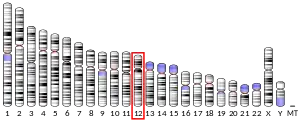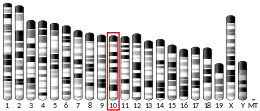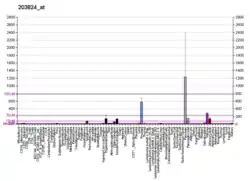| TSPAN8 | |||||||||||||||||||||||||||||||||||||||||||||||||||
|---|---|---|---|---|---|---|---|---|---|---|---|---|---|---|---|---|---|---|---|---|---|---|---|---|---|---|---|---|---|---|---|---|---|---|---|---|---|---|---|---|---|---|---|---|---|---|---|---|---|---|---|
| Identifiers | |||||||||||||||||||||||||||||||||||||||||||||||||||
| Aliases | TSPAN8, CO-029, TM4SF3, tetraspanin 8 | ||||||||||||||||||||||||||||||||||||||||||||||||||
| External IDs | OMIM: 600769 MGI: 2384918 HomoloGene: 20968 GeneCards: TSPAN8 | ||||||||||||||||||||||||||||||||||||||||||||||||||
| |||||||||||||||||||||||||||||||||||||||||||||||||||
| |||||||||||||||||||||||||||||||||||||||||||||||||||
| |||||||||||||||||||||||||||||||||||||||||||||||||||
| |||||||||||||||||||||||||||||||||||||||||||||||||||
| |||||||||||||||||||||||||||||||||||||||||||||||||||
| Wikidata | |||||||||||||||||||||||||||||||||||||||||||||||||||
| |||||||||||||||||||||||||||||||||||||||||||||||||||
Tetraspanin-8 is a protein that in humans is encoded by the TSPAN8 gene.[5][6]
Function
The protein encoded by this gene is a member of the transmembrane 4 superfamily, also known as the tetraspanin family. Most of these members are cell-surface proteins that are characterized by the presence of four hydrophobic domains. The proteins mediate signal transduction events that play a role in the regulation of cell development, activation, growth and motility. This encoded protein is a cell surface glycoprotein that is known to complex with integrins. This gene is expressed in different carcinomas. The use of alternate polyadenylation sites has been found for this gene.[6]
Clinical significance
Overall survival of ovarian cancer patients was effectively predicted by TSPAN8.[7]
References
- 1 2 3 GRCh38: Ensembl release 89: ENSG00000127324 - Ensembl, May 2017
- 1 2 3 GRCm38: Ensembl release 89: ENSMUSG00000034127 - Ensembl, May 2017
- ↑ "Human PubMed Reference:". National Center for Biotechnology Information, U.S. National Library of Medicine.
- ↑ "Mouse PubMed Reference:". National Center for Biotechnology Information, U.S. National Library of Medicine.
- ↑ Szala S, Kasai Y, Steplewski Z, Rodeck U, Koprowski H, Linnenbach AJ (September 1990). "Molecular cloning of cDNA for the human tumor-associated antigen CO-029 and identification of related transmembrane antigens". Proceedings of the National Academy of Sciences of the United States of America. 87 (17): 6833–7. Bibcode:1990PNAS...87.6833S. doi:10.1073/pnas.87.17.6833. PMC 54632. PMID 2395876.
- 1 2 "Entrez Gene: TSPAN8 tetraspanin 8".
- ↑ Fekete T, Rásó E, Pete I, Tegze B, Liko I, Munkácsy G, Sipos N, Rigó J, Györffy B (July 2012). "Meta-analysis of gene expression profiles associated with histological classification and survival in 829 ovarian cancer samples" (PDF). International Journal of Cancer. 131 (1): 95–105. doi:10.1002/ijc.26364. PMID 21858809. S2CID 205944534.
Further reading
- Berditchevski F (December 2001). "Complexes of tetraspanins with integrins: more than meets the eye". Journal of Cell Science. 114 (Pt 23): 4143–51. doi:10.1242/jcs.114.23.4143. PMID 11739647.
- Maruyama K, Sugano S (January 1994). "Oligo-capping: a simple method to replace the cap structure of eukaryotic mRNAs with oligoribonucleotides". Gene. 138 (1–2): 171–4. doi:10.1016/0378-1119(94)90802-8. PMID 8125298.
- Gwynn B, Eicher EM, Peters LL (July 1996). "Genetic localization of Cd63, a member of the transmembrane 4 superfamily, reveals two distinct loci in the mouse genome". Genomics. 35 (2): 389–91. doi:10.1006/geno.1996.0375. PMID 8661157.
- Suzuki Y, Yoshitomo-Nakagawa K, Maruyama K, Suyama A, Sugano S (October 1997). "Construction and characterization of a full length-enriched and a 5'-end-enriched cDNA library". Gene. 200 (1–2): 149–56. doi:10.1016/S0378-1119(97)00411-3. PMID 9373149.
- Serru V, Le Naour F, Billard M, Azorsa DO, Lanza F, Boucheix C, Rubinstein E (May 1999). "Selective tetraspan-integrin complexes (CD81/alpha4beta1, CD151/alpha3beta1, CD151/alpha6beta1) under conditions disrupting tetraspan interactions". The Biochemical Journal. 340 ( Pt 1) (Pt 1): 103–11. doi:10.1042/0264-6021:3400103. PMC 1220227. PMID 10229664.
- Kanetaka K, Sakamoto M, Yamamoto Y, Yamasaki S, Lanza F, Kanematsu T, Hirohashi S (November 2001). "Overexpression of tetraspanin CO-029 in hepatocellular carcinoma". Journal of Hepatology. 35 (5): 637–42. doi:10.1016/S0168-8278(01)00183-0. PMID 11690710.
- Shackel NA, McGuinness PH, Abbott CA, Gorrell MD, McCaughan GW (September 2003). "Novel differential gene expression in human cirrhosis detected by suppression subtractive hybridization". Hepatology. 38 (3): 577–88. doi:10.1053/jhep.2003.50376. PMID 12939584. S2CID 46013740.
- Kuhn S, Koch M, Nübel T, Ladwein M, Antolovic D, Klingbeil P, Hildebrand D, Moldenhauer G, Langbein L, Franke WW, Weitz J, Zöller M (June 2007). "A complex of EpCAM, claudin-7, CD44 variant isoforms, and tetraspanins promotes colorectal cancer progression". Molecular Cancer Research. 5 (6): 553–67. doi:10.1158/1541-7786.MCR-06-0384. PMID 17579117.
This article is issued from Wikipedia. The text is licensed under Creative Commons - Attribution - Sharealike. Additional terms may apply for the media files.




